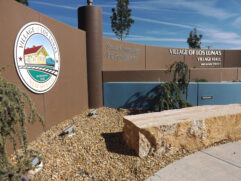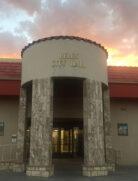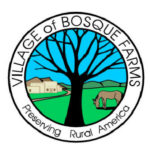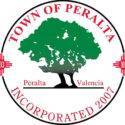Governing body meetings refer to gatherings held when the quorum, or the minimum number of members, are present to discuss policy or take official action.
Public meetings must adhere to New Mexico’s Open Meetings Act, which every local governing board adopts each year.
There are procedures every board adheres to at every meeting, including a call to order of the meeting, a roll call of the board in attendance, a reciting of the Pledge of Allegiance, approval of the agenda and approval of minutes from previous meetings.
Most, if not every governing board, will also include time for public comments at a regular meeting.
The purpose of having a public comment portion on an agenda is for the governing body to hear concerns and comments from the public, specifically those whom it will impact.
Government entities are required to give proper notice to the person or persons who will be affected by a potential action that will be taken. Proper notice is given to the potentially affected parties to allow them the opportunity to speak on the issue in front of the board and the public.
This can happen through posting the meeting time, date and agenda item in the local newspaper, government offices or other locations around the city.
The presenter of the agenda item will briefly describe the item and stand for questions or comments from the public and the governing body.
Public comments are commonly restricted to a three to five-minute time limit to allow everyone who wishes to speak an opportunity to do so.
The clerk or administrator will collect the name of each person making a public comment to make note that it’s on the record.
It is the job of the mayor or chairperson of the board to make sure the comments remain on topic and keep anyone else from disrupting the speaker’s time. The speaker addresses the board, not the public. Board members may ask questions for context or clarification.
Each municipality will have its own policies for how its meetings are held.
When the council goes into executive session, which is a closed meeting to discuss personnel, legal or land-use issues. The Open Meetings Act defines a permissible use of executive session as the following:
“Specifically, a public body may close a meeting to discuss the hiring, promotion, demotion, dismissal, assignment or resignation of an individual public employee or the investigation or consideration of complaints or charges against an individual public employee.”
A special meeting can also be called a workshop meeting. It refers to a specific meeting called to discuss a specific item that will need an action taken.
The format of any special meeting can differ from regular meetings. Action might be taken after a special meeting is held, which is why it’s important for the public to view the agenda prior to the meeting.
According to the New Mexico Open Meetings Act, a public governing body is required to make the agenda of a regular and special meeting available to the public at least 72 hours before the meeting.
If an emergency meeting is called, the governing body needs to give notice 24 hours before the meeting if at all possible.
An emergency meeting is called to discuss issues that need to be resolved immediately because it could threaten public health, safety, property or financial loss to the governing body. These kinds of meetings are called when something like the things listed above could not be anticipated.
An agenda doesn’t need to be available prior to the emergency meeting, but it must be provided at the time of the meeting.
When a governing body is considering a new or amended ordinance, it must also hold a public hearing so the public can participate in voicing their opinions on the proposed, new law.
A public hearing can be held during a regular meeting, before the governing body considers adoption.
The New Mexico Municipal League advises each council member does the necessary homework before meetings. Council members must come to meetings prepared. They must read the staff reports and background material necessary to understand and evaluate the decisions.
The Valencia County News-Bulletin is a locally owned and operated community newspaper, dedicated to serving Valencia County since 1910 through the highest journalistic and professional business standards. The VCNB is published weekly on Thursdays, including holidays both in print and online.


















